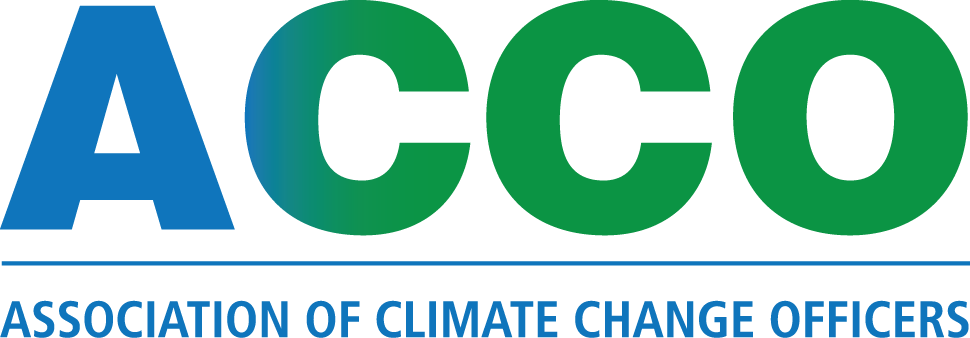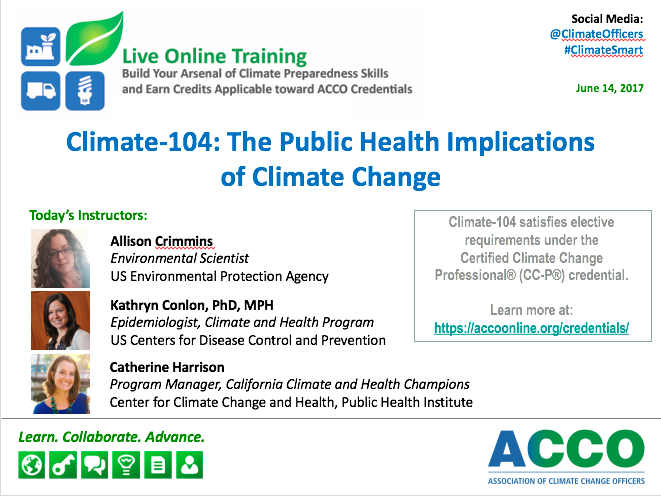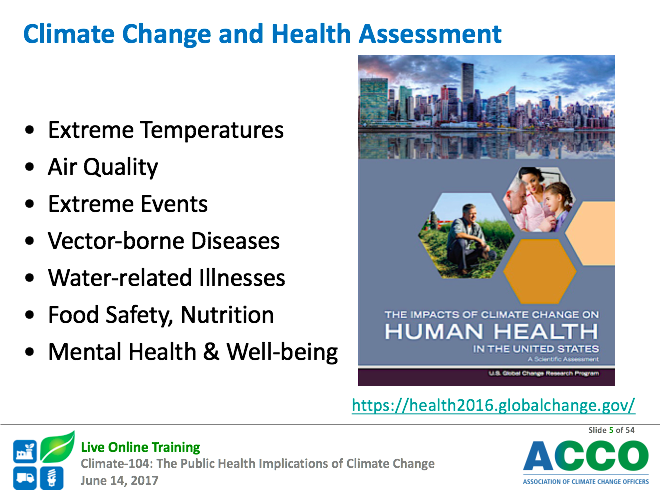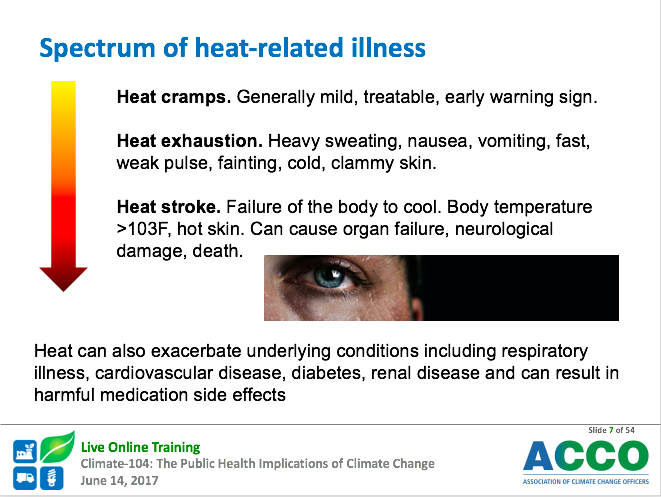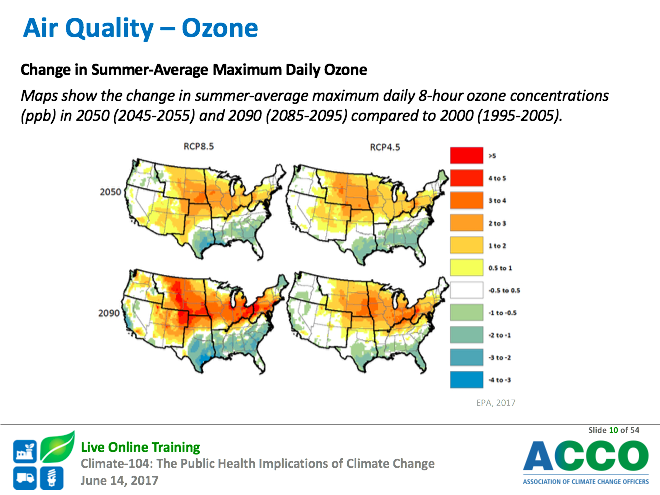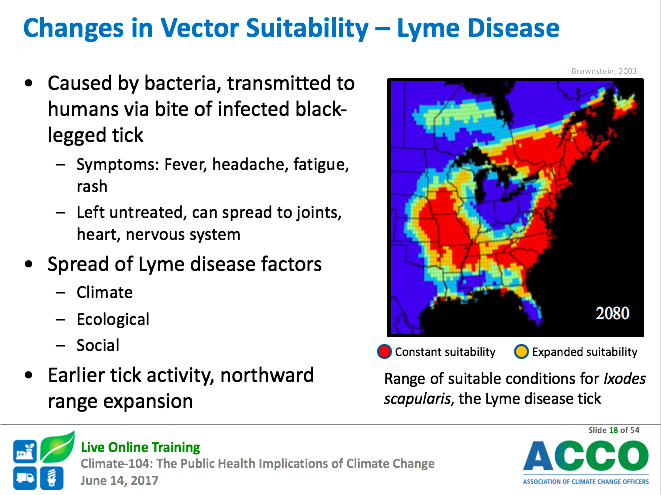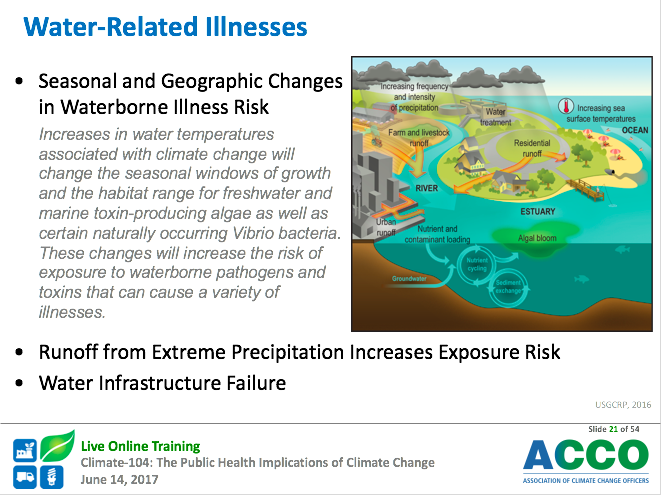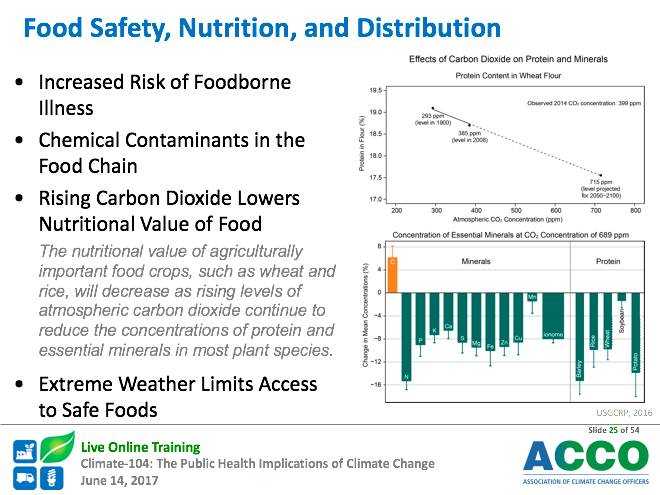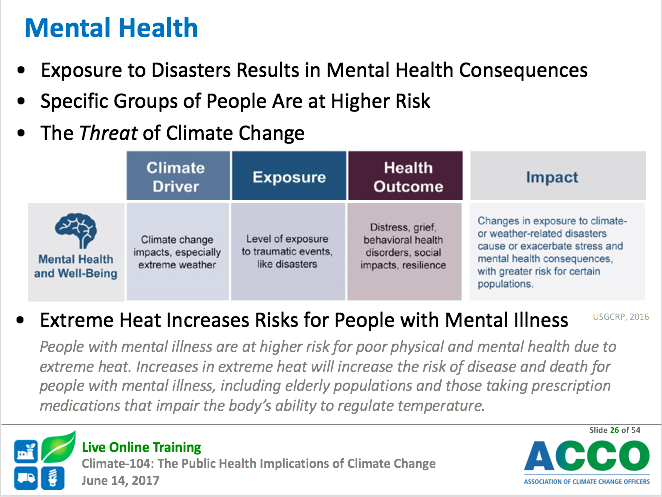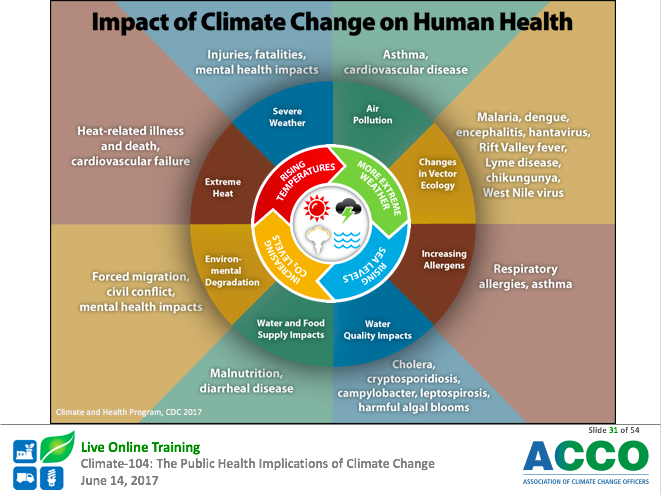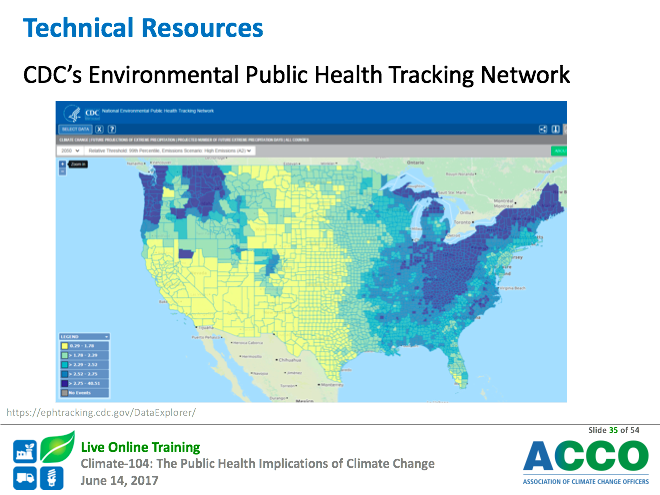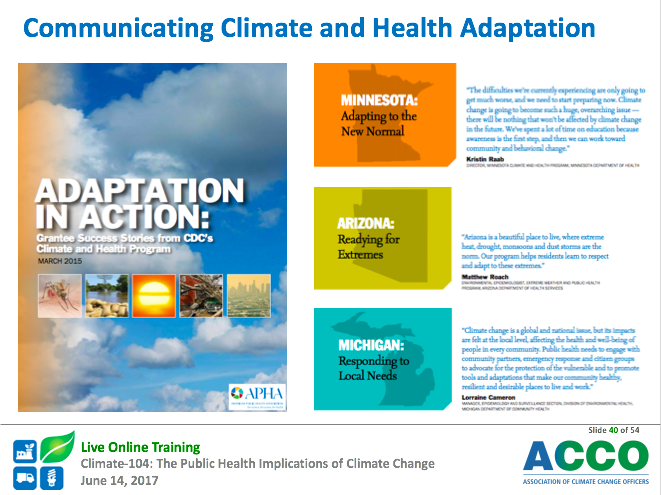Climate-104: The Public Health Implications of Climate Change
Elective
Estimated Time: 1.5 hours
Scroll down and to the right to perform a free self-assessment on the Climate-104 module.
This course examines how climate change is already affecting human health from the perspectives of social and behavioral sciences, epidemiology, biostatistics, environmental health, and health services management and policy. Attendees will learn how climate impacts on food, water and air quality, along with weather events create risks for human health. Course content will include implications of degraded air quality, disease transmission and vectors, vulnerabilities to asthma and allergies, and changes to traditional norms. The course will also address the nexus of climate change impacts with other underlying health, demographic, and socioeconomic factors.
Preliminary Learning Objectives
- Understanding the public health implications of climate change
- Assessing trends in public health likely to take place as climate impacts increase
- Leveraging resources to identify impacts likely to be experienced in certain geographic regions or region type
- Effectively and persuasively communicating climate change and public health considerations
Course Architects
- Elizabeth Babcock – Manager, Air, Water and Climate, Denver Department of Environmental Health
- John Balbus – Senior Advisor for Public Health, National Institutes of Health
- Elizabeth Carlton – Assistant Professor, Environmental & Occupational Health, Colorado School of Public Health
- Kathryn Conlon – Epidemiologist, Climate and Health Program, National Center for Environmental Health, Centers for Disease Control and Prevention
- Allison Crimmins – Environmental Scientist, Climate Change Division, Office of Atmospheric Programs, U.S. Environmental Protection Agency
- Catherine Harrison – Program Manager, Center for Climate Change and Health, Public Health Institute
- George Luber – Chief, Climate and Health Program, National Center for Environmental Health, Centers for Disease Control and Prevention
- Linda Rudolph – Principal Investigator, Public Health Institute
CLICK ON THE IMAGE ABOVE FOR A SAMPLE CLIP FROM THE ONLINE TRAINING. TO PURCHASE ON-DEMAND ACCESS TO THIS TRAINING COURSE, CLICK ON THE 'ADD TO CART' BUTTON BELOW.
Loading Self-Assessment (Climate-104)
